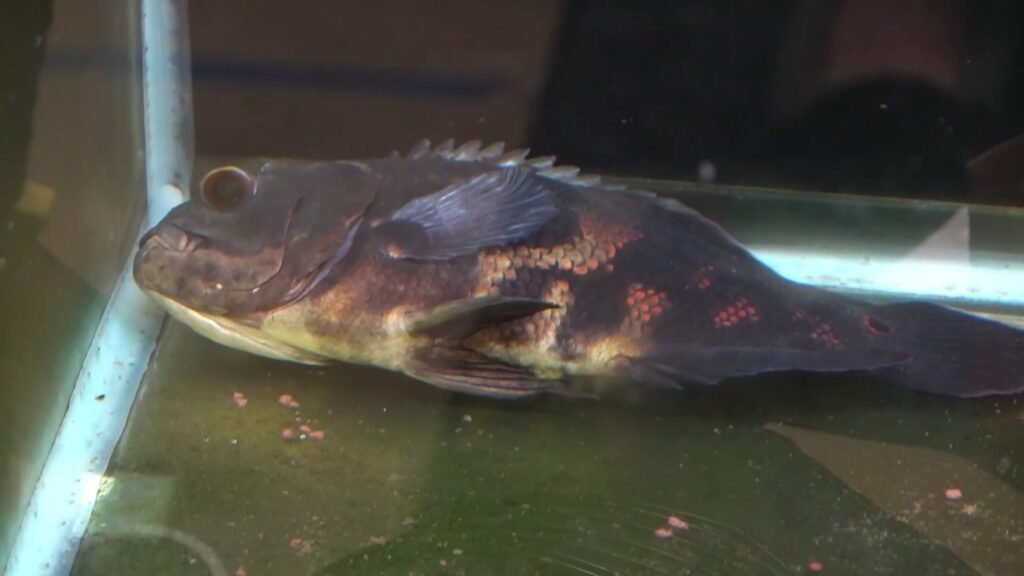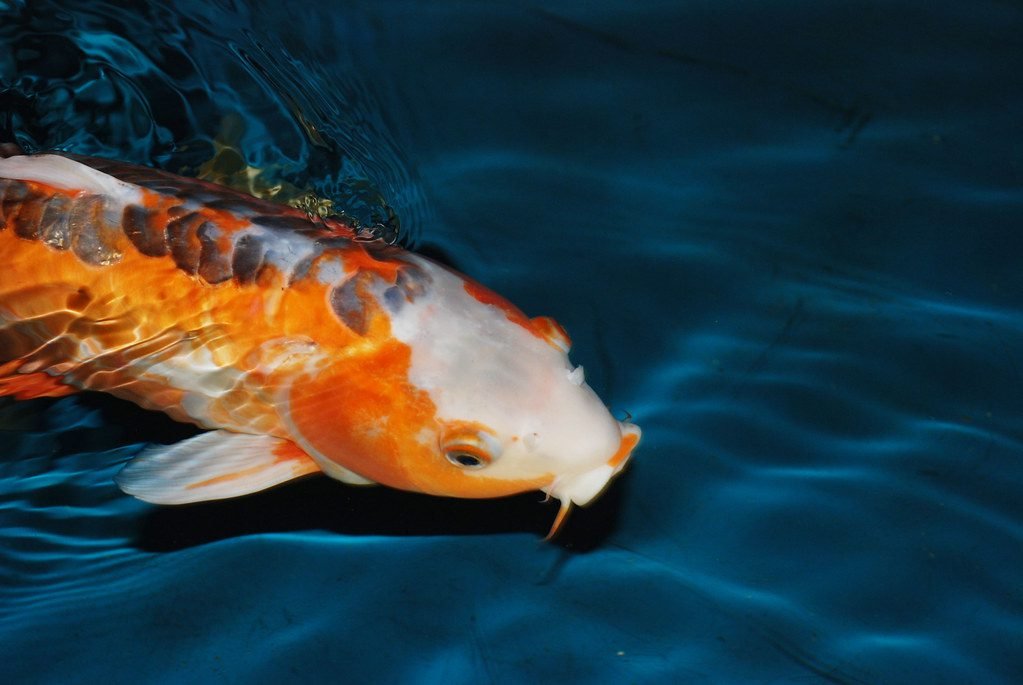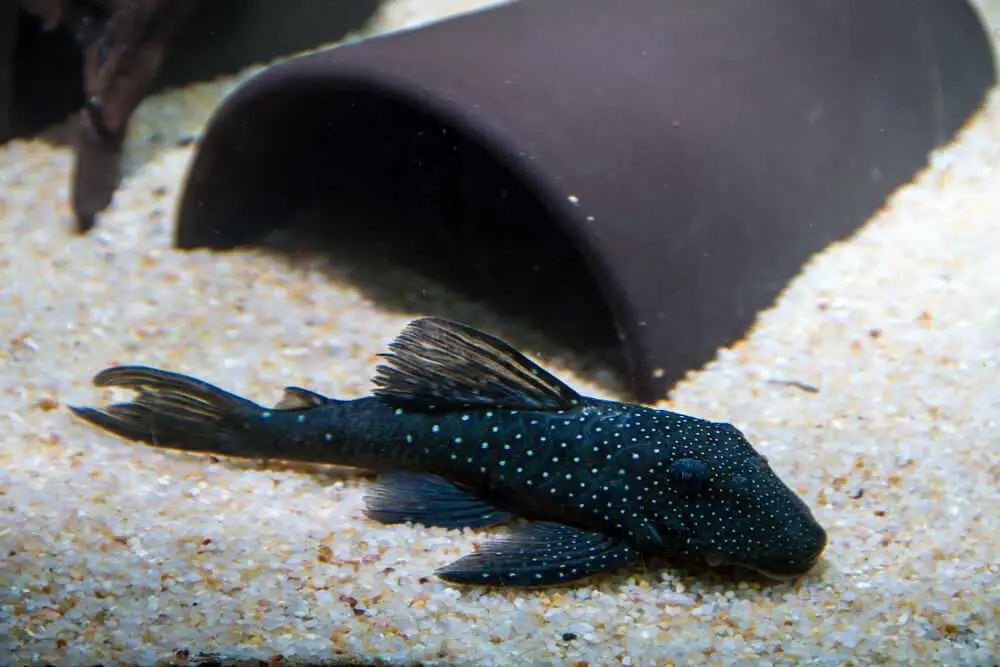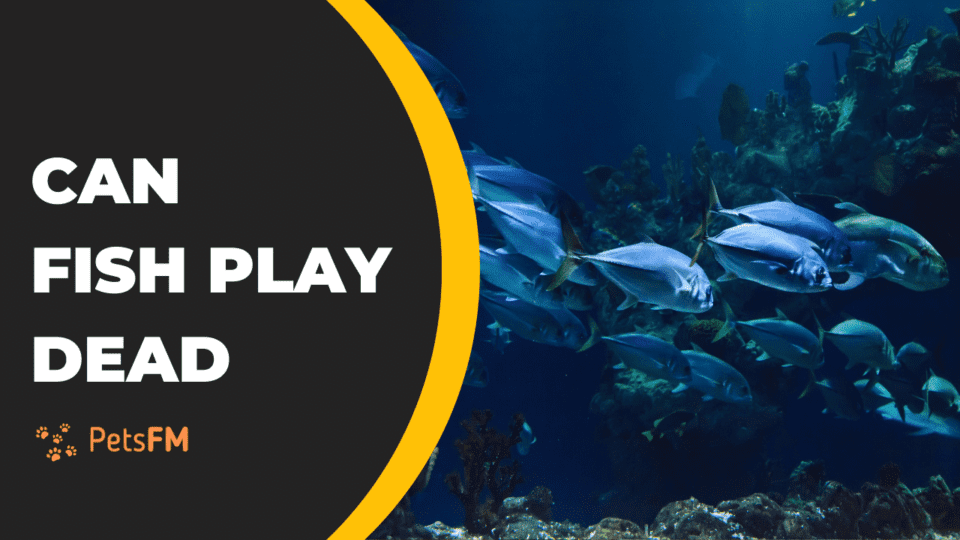


Can a fish actually drown? Let’s find out!
February 25, 2024


Is My Fish Depressed? The Red Flags to Watch For
February 25, 2024Did you know that fish might have a trick up their fins similar to some land animals’ famous “playing dead” tactic? A curious question sparks interest: Can fish play dead? This blog post is set to explore the mysterious world beneath the waves, uncovering whether fish can fake death and why they might do so.
Here’s a quick answer:
Yes, some fish can play dead. This behavior, known as “thanatosis,” is a defense mechanism that tricks predators into thinking the fish is dead and not worth eating. By lying motionless, often on their sides or backs, these fish can avoid attacks or escape from threats. Thanatosis is uncommon in all fish species but has been observed in certain types, demonstrating their ability to adapt and survive in the wild through unique and clever methods.
Why do fish play dead?
Fish play dead primarily as a survival tactic to avoid predators. By faking death, they appear unappealing or indicate they’re not a viable meal, reducing the risk of being attacked or eaten. This behavior is a fascinating example of how long animals will go to ensure survival in the wild.


Fish playing dead
To avoid predators
Fish playing dead make themselves look unattractive to predators who prefer live prey, thus avoiding becoming their next meal.
To escape threats
By playing dead, fish can catch potential threats off guard, giving them a chance to escape when predators lose interest.
Also, Read: Can a fish actually drown? Let’s find out!
What fish species can play dead?
Several fish species have mastered playing dead as a defense mechanism or to lure prey. This intriguing behavior showcases fish’s adaptability and survival strategies in their natural habitats.
- Oscar Fish (Astronotus ocellatus): Known for their intelligence, Oscars often play dead to escape predators or trick their owners.
- Sharks: Some shark species, like the Lemon Shark, can enter a state of tonic immobility, resembling death, when flipped upside down.
- Cichlids: Certain cichlids feign death to lure prey closer before attacking.
- Betta Fish (Siamese Fighting Fish): While not common, some bettas have been observed playing dead, possibly to avoid aggression or as a stress response.
- Parrotfish: Utilize a unique method of playing dead by secreting a protective cocoon at night, which might make them seem inanimate to passersby, aiding in avoiding predation.
- Goldfish: In some instances, goldfish have been known to play dead, especially when stressed or feeling threatened, to avoid attention.
- Koi Fish: Similar to goldfish, koi can exhibit playing dead under stress or when trying to evade perceived threats in their environment.
- Mudskippers: These amphibious fish might play dead when out of water or when threatened, using their ability to survive both in and out of water to their advantage.
- Feigning Blenny (Aspidontus taeniatus): Mimics the behavior of other dead fish as part of its predatory strategy or to avoid being eaten by mimicking more dangerous species.
How do fish play dead?
Fish play dead using a behavior known as thanatosis, where they remain motionless and often float upside down or lie on their sides at the bottom of their aquatic environment.
This act is a survival tactic to deceive predators into thinking they are dead and not worth pursuing. The process involves several steps:
- Stillness: The fish stops all movement, mimicking the appearance of a dead fish. This lack of motion is crucial for convincing predators.
- Floating or Sinking: Depending on the species and their natural behavior, some fish may float to the surface, while others sink to the bottom. In both cases, they adopt an unnatural position for a living fish.
- Breathing Slowdown: To enhance the illusion, some fish can slow their breathing, making it less noticeable to predators.
- Color Changes: Certain species might change their coloration to a paler hue, similar to a dead fish, although this is less common.
Recommended Reading: Are Fish Good Pets? 10 Things to Consider Before Getting One


Koi Fish Closeup Shot
Is playing dead effective for fish survival?
Yes, playing dead can be an effective survival strategy for fish. This behavior, known as thanatosis, helps fish avoid predation by appearing unappealing or inedible to predators. Here are some key reasons why playing dead can enhance survival:
Reduced attractiveness to predators
Predators are often attracted to movement, as it indicates a potential living prey. A fish that remains motionless and appears dead is less likely to catch the attention of predators looking for their next meal.
Surprise element
By playing dead, fish can create an element of surprise. Predators that lose interest in what they perceive as dead fish may move away, allowing the fish to escape when the threat is no longer present.
Energy conservation
In situations where escape is not immediately possible, playing dead allows fish to conserve energy that would otherwise be spent on futile escape attempts. This conserved energy can be crucial for survival and escape when conditions are more favorable.
Mimicking the dead
Some fish take this behavior further by mimicking the appearance of dead fish, either by floating upside down or lying on the bottom. This can deter predators who prefer live prey or are cautious of consuming potentially diseased or poisoned animals.


Pleco Fish Playing Dead
Editor’s Pick: Why can’t fish live in tap water?
Can aquarium fish play dead?
Aquarium fish can also play dead, a behavior not exclusive to wild fish. This phenomenon can be observed in various species in home aquariums or public displays. Here are some reasons why aquarium fish might display this behavior:
Stress or illness
Aquarium fish might play dead due to stress, illness, or discomfort. Changes in water parameters, bullying by tank mates, or illness can lead to fish lying motionless at the bottom or floating in an unusual position, mimicking death to avoid further stress or aggression.
Seeking Attention
Some fish, like the Oscars, are known for their intelligence and personality. These fish might play dead to attract attention from their owners, especially if they’ve learned that this behavior results in interaction or feeding.
Predatory or defensive behavior
Like in the wild, some aquarium fish play dead as part of their predatory strategy or to defend themselves from perceived threats, including aggressive tank mates.
Adaptation to environment
Fish in aquariums may adopt this behavior as an adaptation to their controlled environment, especially if they feel threatened or are adapting to new tank mates or surroundings.
How can you tell if a fish is really dead or just faking it?
Telling if a fish is really dead or just playing dead can be challenging, but there are several signs and steps you can take to make an accurate determination:
Observe the gills and eyes
Breathing: Look for subtle gill movements that indicate the fish is still breathing. Even if a fish tries to play dead, it must live, and the gills will move slightly.
Eye Movement: Check for any eye movement. Even when playing dead, a fish that is alive may still move its eyes.
Watch for changes in position
Natural Movement: Gently observe the fish without disturbing it. A live fish will eventually resume normal swimming behavior, especially if it feels the threat has passed or is trying to adjust its position for comfort.
Check the body for rigidity
Rigidity vs. Flexibility: A dead fish’s body typically becomes stiff due to rigor mortis after some time, whereas a fish playing dead will still have a flexible body. Gently nudging the fish with a net can help assess this, but be cautious not to stress the fish further.
Look for decomposition or other signs of death
Signs of Decomposition: A truly dead fish may start showing signs of decomposition, such as a cloudy eye appearance, discoloration, or an unpleasant odor. These signs usually take a bit of time to develop.
Water quality and fish health
Assess Conditions: Sometimes, the overall health and conditions of the aquarium can provide clues. Poor water quality or recent fish deaths in the tank might indicate a broader issue affecting the fish.
Professional advice
If you’re still unsure, seeking advice from a veterinarian specialized in aquatic animals or a knowledgeable aquarium professional can provide further guidance and peace of mind.


Does playing dead affect fish health?
Playing dead does not negatively affect fish health; it is a natural defense mechanism some fish employ to avoid predation or threats. However, if a fish is frequently playing dead, it could indicate stress or poor water conditions in its environment.
Chronic stress can weaken a fish’s immune system, making it more susceptible to diseases. Therefore, while playing dead is not harmful, the underlying reasons causing a fish to frequently exhibit this behavior should be addressed to ensure the fish’s health and well-being.
Regular monitoring of water quality, providing a suitable habitat, and ensuring a stress-free environment are crucial for the health of aquarium fish.\
Next Read: Can Fish Survive in Bowls? Should You Keep One?
Conclusion
In conclusion, while some fish species can play dead as a survival tactic or stress response, it’s a fascinating behavior that underscores the complexity of aquatic life. Aquarium enthusiasts should observe their fish for this behavior, understanding its implications for fish health and the importance of maintaining a stress-free environment for their aquatic pets.



